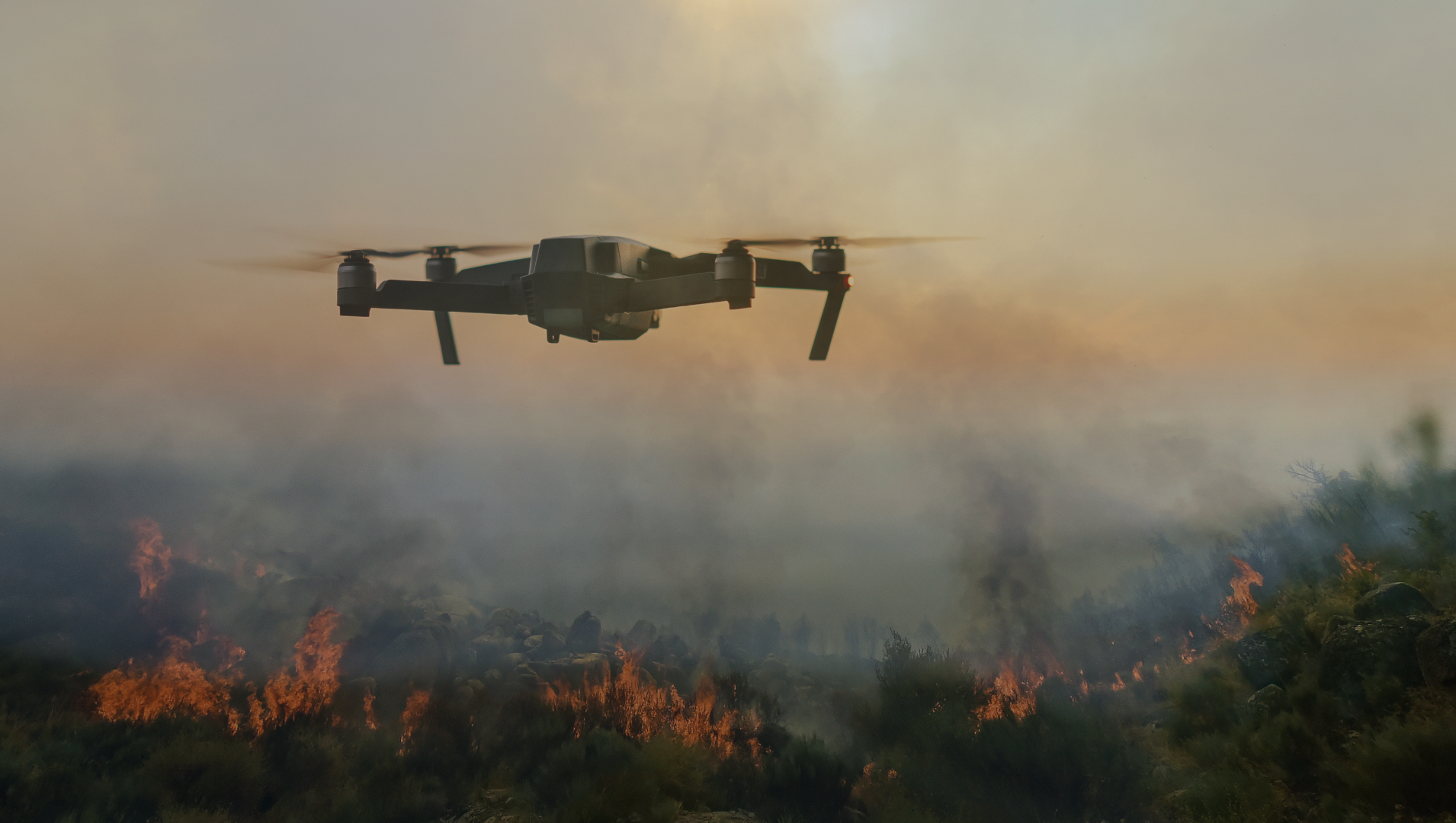Supercharge your defense operations with NDL solutions. Dive into a partnership that expands your team's cognitive reach. Ready to amplify your project's impact?
Case Studies in Drone Warfare: Successes, Controversies, and Lessons Learned

Case Studies in Drone Warfare: Successes, Controversies, and Lessons Learned
Drone technology in combat has emerged as a transformative force in modern military operations, offering unparalleled strategic advantages and raising significant ethical and operational questions.
By examining various case studies, we can gain insights into both the successes and controversies surrounding the use of drones in warfare, as well as the lessons learned from their deployment.
From the precision strikes in counterterrorism efforts to the psychological toll on drone operators, each case study sheds light on the multifaceted impact of military drones.
In this document, we will delve into these case studies to better understand how drones have shaped contemporary combat and what this means for the future of warfare.

Introduction to Drone Warfare
Evolution of Drone Technology
Drone technology has come a long way since its early days. Initially, drones were primarily used for reconnaissance missions, providing valuable intelligence without risking human lives.
Over the years, advancements in technology have significantly expanded their capabilities.
Modern drones can now perform a variety of roles, including precision strikes, surveillance, and even logistical support.
Enhanced AI capabilities and improved sensor technology have made drones more autonomous and efficient.
The integration of drones with other military systems has also improved, allowing for seamless operations.
These advancements have made drones an indispensable tool in contemporary military strategy, offering both tactical and strategic advantages.
However, as drone technology continues to evolve, it also raises new ethical and operational challenges that must be addressed.

Key Benefits of Military Drones
Military drones offer several key benefits that enhance operational efficiency and safety. One of the most significant advantages is precision strikes. Armed drones can target high-value assets with minimal collateral damage, an essential capability in counterterrorism operations.
Drones also provide enhanced surveillance and reconnaissance, delivering real-time intelligence that helps military forces monitor enemy movements and assess battlefield conditions.
Another critical benefit is the reduced risk to personnel. Drones can execute dangerous missions without putting human pilots in harm's way, thereby lowering casualties.
Additionally, drones are cost-effective compared to manned aircraft, requiring less maintenance and eliminating the need for extensive pilot training.
Their versatility and flexibility allow them to perform various tasks, from intelligence gathering to combat support, making them indispensable in modern military operations.
Ethical and Legal Considerations
The use of drones in military operations raises significant ethical and legal questions. One primary concern is the issue of sovereignty. Drone strikes often occur in foreign territories, leading to debates about the violation of national sovereignty and international law. Civilian casualties are another critical issue.
Despite advancements in precision targeting, collateral damage can still occur, raising moral questions about the cost of such operations.
The psychological impact on drone operators is also a point of concern. Remote operations can create a sense of detachment from the reality of combat, potentially leading to long-term mental health issues.
Furthermore, the lack of transparency in decision-making processes for drone strikes complicates accountability.
As drone technology continues to evolve, addressing these ethical and legal considerations is essential to ensure responsible use in military operations.

Successes in Drone Warfare
The War on Terror
The use of drones has been pivotal in the War on Terror, particularly in regions like Afghanistan, Pakistan, and Yemen. These unmanned aerial systems have allowed for precise targeting of terrorist leaders and high-value targets without risking the lives of military personnel.
The ability to conduct real-time surveillance and gather intelligence has significantly disrupted terrorist networks and thwarted potential attacks. For example, drone strikes have successfully eliminated key figures in organizations such as Al-Qaeda and ISIS, thereby weakening their operational capabilities.
However, while these actions have demonstrated the tactical advantages of drones, they have also sparked controversy. Issues such as civilian casualties and the sovereignty of other nations have been points of significant debate.
Despite these controversies, the effectiveness of drones in counterterrorism efforts highlights their strategic value in modern warfare.

Operation Inherent Resolve
During Operation Inherent Resolve, drones played a crucial role in the fight against ISIS. These unmanned systems were invaluable for intelligence gathering, providing real-time surveillance that helped identify enemy positions and movements.
Drones also conducted precision strikes, targeting key ISIS infrastructure and personnel, thus crippling their operational capabilities.
The ability to carry out these actions remotely reduced the risk to human pilots and allowed for sustained operations over hostile territory. Additionally, drones provided essential battlefield support, such as monitoring supply lines and aiding in search and rescue missions.
The success of drones in Operation Inherent Resolve underscores their tactical advantages in asymmetric warfare, where traditional methods may be less effective.
However, the use of drones also brought up ethical concerns, such as the potential for civilian casualties, which continue to be a topic of ongoing discussion.

Humanitarian Missions
Beyond combat roles, drones have proven to be invaluable in humanitarian missions. These unmanned aerial vehicles have been used to deliver aid to inaccessible or dangerous areas, ensuring that essential supplies such as food, medicine, and water reach those in need.
During natural disasters, drones provide real-time aerial assessments, helping rescue teams to identify the most affected areas and plan their response more effectively.
They can also be deployed to monitor and assess damage to critical infrastructure, such as roads and bridges, facilitating quicker repairs and recovery.
Additionally, drones have been used in search and rescue operations, locating survivors in challenging terrains where traditional methods may falter.
These applications showcase the broader potential of drone technology, demonstrating that its utility extends far beyond the battlefield. Drones can significantly impact human lives and alleviate suffering.

Controversies and Challenges
Ethical Dilemmas and Legal Issues
The deployment of drones in military operations has sparked numerous ethical dilemmas and legal issues. One of the primary concerns is sovereignty.
Drone strikes often occur in foreign nations, raising issues about the violation of territorial rights and international law.
Civilian casualties, despite efforts to minimize them, remain a significant ethical problem, with debates centered on the acceptable levels of collateral damage.
The lack of transparency in the decision-making processes for drone strikes further complicates matters, making accountability difficult to establish.
Additionally, the psychological impact on drone operators, who are often far removed from the combat zone, introduces questions about the mental health and ethical implications of remote warfare.
As drones become more integrated into military strategies, addressing these ethical and legal challenges is essential for their responsible and effective use in future operations.

Technological Vulnerabilities
Despite their advanced capabilities, military drones are not without technological vulnerabilities. One significant concern is the potential for technical malfunctions.
Hardware or software failures can compromise missions and threaten military and civilian lives.
Drones are also susceptible to hacking and electronic warfare tactics, such as signal jamming and spoofing, which can disrupt their operations or even lead to the capture of the drone.
Cybersecurity is a critical issue, as adversaries could exploit vulnerabilities to access sensitive data or control the drone.
Additionally, reliance on GPS and communication links makes drones vulnerable to disruptions in these systems, whether through natural interference or deliberate attacks.
Addressing these technological vulnerabilities is crucial for ensuring the reliability and security of military drones in combat scenarios, highlighting the need for ongoing research and development in this field.

Psychological Impact on Operators
The psychological impact on drone operators is an often overlooked but critical issue in drone warfare.
Operators who control drones from remote locations experience a unique set of stressors.
The disconnect between their physical safety and the lethal actions they command can lead to feelings of detachment and moral ambiguity.
This dissonance has been linked to mental health issues such as post-traumatic stress disorder (PTSD), anxiety, and depression.
The continuous exposure to graphic imagery and the responsibility of making life-and-death decisions add to the emotional burden. Moreover, the long hours and high-stakes environment contribute to burnout and fatigue. Addressing these psychological impacts is essential for the well-being of drone operators.
Proper mental health support, counseling, and stress management programs can help mitigate these effects and ensure that operators remain effective and healthy.

Lessons Learned from Case Studies
Operational Effectiveness
Case studies in drone warfare have provided valuable insights into operational effectiveness. One key lesson learned is the importance of integrating drones with other military assets.
Combining real-time intelligence from drones with ground and air operations has enhanced overall mission success.
Additionally, the ability to conduct precise strikes while minimizing collateral damage has made drones indispensable in targeted operations.
However, drones' effectiveness also depends on robust command and control systems, which ensure seamless operation and quick decision-making.
Another lesson is the necessity for continuous technological advancements.
Upgrading sensors, improving AI capabilities, and enhancing cybersecurity measures are crucial for maintaining operational effectiveness.
Lastly, understanding drones' limitations and vulnerabilities allows for better strategic planning and risk management, ensuring that drones are used to their fullest potential while mitigating associated risks.

Strategic Implications
The strategic implications of drone warfare are profound and multifaceted. One significant lesson from case studies is the shift in military tactics and strategies.
Drones allow for persistent surveillance and precision strikes, enabling a more calculated and less invasive approach to conflict.
This capability has led to changes in how military forces plan and execute operations, often prioritizing drone use for high-risk missions.
Additionally, the reduced risk to personnel has made it politically easier to engage in military actions, potentially lowering the threshold for the use of force.
This shift, however, also poses risks of over-reliance on drone technology, which may lead to strategic complacency and neglect of other critical military capabilities.
Furthermore, the global proliferation of military drones has implications for national security, as adversaries may also develop sophisticated drone programs.
Understanding these strategic implications is essential for developing balanced and effective military policies.

Policy Recommendations
Based on the lessons learned from drone warfare case studies, several policy recommendations can be made to enhance the responsible and effective use of drones in military operations.
First, there should be clear and transparent guidelines for the use of drones, particularly in targeted strikes, to ensure accountability and minimize civilian casualties.
Ethical considerations must be integrated into decision-making processes to address moral and legal concerns.
Second, investment in advanced technologies is crucial for maintaining operational effectiveness and minimizing vulnerabilities.
This includes improvements in AI, cybersecurity, and sensor capabilities.
Third, mental health support for drone operators should be prioritized to mitigate the psychological impact of remote warfare. Lastly, international cooperation and regulation are essential to manage the global proliferation of military drones and prevent misuse.
By adopting these policy recommendations, military forces can better leverage the advantages of drone technology while addressing its inherent challenges.

The Future of Military Drones
Advances in AI and Autonomy
Advances in AI and autonomy are set to significantly shape the future of military drones. Enhanced AI capabilities will allow drones to perform more complex tasks more efficiently and precisely.
Autonomous drones could execute missions with minimal human intervention, reducing response times and operational costs. These advancements will enable drones to adapt to dynamic battlefield conditions in real time, making them more versatile and practical.
AI-driven analytics will improve decision-making processes by quickly processing vast amounts of data from multiple sources.
Furthermore, autonomy will allow for swarming tactics, where multiple drones operate in coordinated groups to overwhelm adversaries. However, these advancements also come with challenges, such as ensuring robust cybersecurity to protect against hacking and ethical considerations regarding the level of autonomy in lethal operations.
As AI and autonomy evolve, they will play a pivotal role in the next generation of military drones.

Integration with Other Systems
Future advancements in military drones will increasingly focus on integrating with other systems. This integration aims to create a cohesive and efficient combat network where drones work seamlessly with manned aircraft, ground forces, and naval units.
Enhanced communication and data-sharing capabilities will enable real-time coordination, improving situational awareness and operational effectiveness.
For instance, drones can provide real-time intelligence to ground troops, allowing for more informed decision-making and rapid response to threats.
Additionally, integrating drones with satellite systems will extend their operational range and enhance global surveillance capabilities.
Using drones in logistics, such as resupply missions, further highlights their versatility. However, ensuring interoperability between different systems and platforms remains challenging, requiring standardized protocols and robust cybersecurity measures.
As this integration progresses, it will significantly enhance the strategic capabilities of military forces, making operations more interconnected and efficient.
Future Trends and Innovations
The future of military drones is poised for remarkable advancements and innovations. One notable trend is the development of stealth drones designed to evade radar and operate in high-threat environments.
These drones will enhance the ability to conduct covert operations with reduced risk of detection. Another significant innovation is the miniaturization of drone technology, which will lead to the creation of micro-drones that can be deployed for reconnaissance in confined or hard-to-reach areas.
Integrating advanced AI will also enable autonomous decision-making, allowing drones to adapt to changing mission parameters in real-time.
Energy efficiency is also a key focus, with research into solar-powered drones and improved battery technologies extending operational endurance. Future drones may incorporate advanced weaponry, including directed energy weapons like lasers.
These trends and innovations will redefine the capabilities and applications of military drones, making them more versatile, effective, and indispensable in modern warfare.

Conclusion
Drones have significantly altered the landscape of military operations, providing an array of strategic advantages such as precision strikes, enhanced reconnaissance, and reduced risk to military personnel.
The case studies discussed illuminate drones' dynamic roles, from counterterrorism to humanitarian aid. However, they also underscore the ethical, legal, and psychological challenges that demand attention and action.
As we look to the future, advances in AI autonomy and integration with other military systems will continue to expand drone capabilities.
Innovations such as stealth technology, micro-drones, and energy-efficient designs promise to further cement drones' role in military strategy. It will be crucial to embrace these innovations while adhering to responsible use policies.
In a realm where technology outpaces policy, continuous evaluation and adaptation are imperative. Establishing transparent guidelines, investing in advanced technology, supporting drone operators' mental health, and promoting international cooperation will guide the evolution of drone warfare towards a balanced and ethical future.
This document has explored the transformative effect of drones in contemporary combat scenarios, reflecting on the successes and controversies to offer a forward-looking perspective. By leveraging the insights gained and prioritizing responsible use, the trajectory of military drones can be directed to maximize strategic benefits while maintaining ethical integrity as they become increasingly integral in defense and security worldwide.



